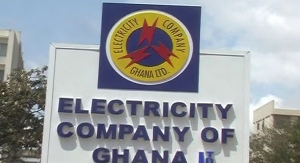An innovative project to help farmers use empirical research to overcome soil fertility challenges and other technical bottlenecks affecting increased crop yields has been launched at a ceremony at Akyawkrom, in the Ejisu Municipality.
The objective of the ‘Research for Development and Innovation Agriculture (ReDial) project, is to promote transformation and innovation in the agriculture and food systems through action research and application of innovative technologies to improve soil fertility in the country.
It is being funded by the European Union at the cost of €2.120m.
A consortium of partners, made up of Friends of the Nation (FoN), Tropenbos Ghana and the Faculty of Renewable Natural Resources of the Kwame Nkrumah University of Science and Technology (KNUST), are implementing the project over a period of four years.
Mr. Donkris Mevuta, Executive Director of FoN, who made this known at the launch of the project, said over 10,000 farmers from Yendi, Techiman, Ejura-Sekyedumase, Sefwi Wiawso, Kwahu Afram Plains, and Asante Mampong would benefit from the project.
He said farmers would generate scientific knowledge and data while using technology to improve the threshing of grains and cereals.
The use of solar technology to thresh rice, maize, and other grains would ensure low emission associated with production.
Mr. Mevuta pointed out that the project would help contribute to climate-resilient agriculture and food security systems, as outlined in the Ghana National Change Policy Project.
Mr. Kyei Kwdwo Yamoah, the Project Coordinator, said it would help reduce poverty, eradicate hunger, and ensure decent work.
He charged farmers to form groups to make it easier for them to benefit from the project.
Mr. Jacob Frimpong Manso, a farmer, was optimistic that the project would help deal with post-harvest losses and eradicate child labour in agriculture and food production.
Regional News of Thursday, 29 October 2020
Source: GNA

















